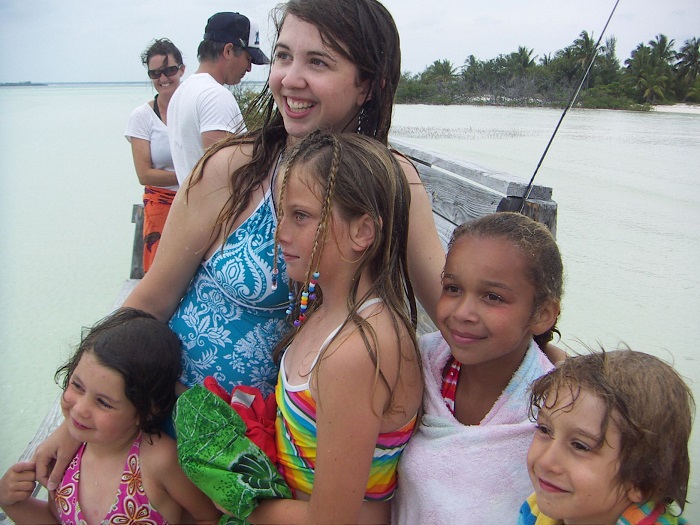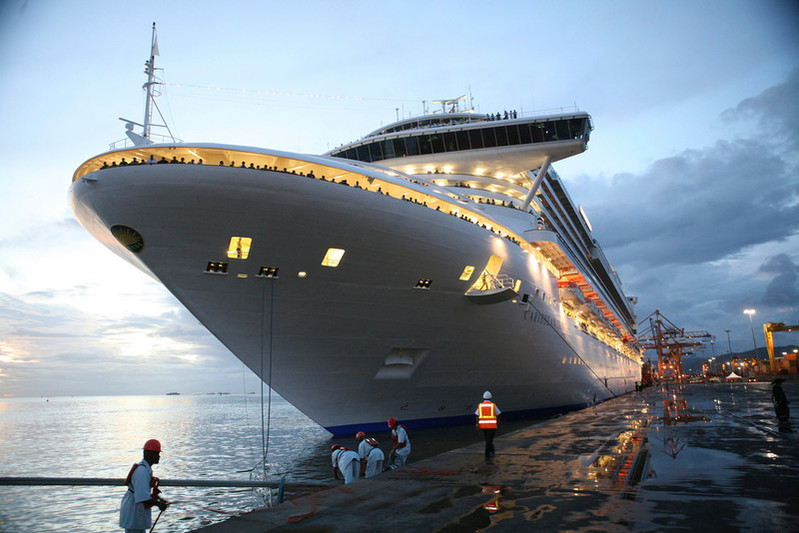Tourism: Balancing between planet and profit
July 2
We’re standing on a precipice, a few feet away from diminishing returns due to decades of unsustainable tourism management writes 27-year-old Commonwealth Correspondent Renice Medford from Christ Church, Barbados. Yet, right in front of us is a huge opportunity for tourism profit. Do we go ahead and invest, or take two steps back to find a more sustainable way?
The Caribbean is the most tourism-dependent region in the world, according to the United Nations World Tourism Organisation.
Tourism can bring much prosperity and helps to sustain economies. However, that same tourism boom can eventually lead to a slow leak of much-needed financial resources.
Governments are being forced to take their tourism revenue and invest considerably in climate-proofing measures, in building more resilient infrastructure, in constructing mechanisms to replace the natural defenses once provided by thriving coral reefs, and in building a tourism industry which is not solely dependent upon natural assets.
Ironically, tourism itself has been a significant contributor to these very challenges. In short, we have built mass tourism industries that are unsustainable.
‘Over-tourism’ was one of Oxford Dictionary’s 2018 ‘words of the year’. From over-consumption of scarce resources and the effects of the fossil fuel-intensive aviation industry, to the destruction of sites of historic and cultural value, and the loss of vegetation and biodiversity, tourism has left its scars throughout the Caribbean and globally.
There’s only so much that our natural and built environment can take. Our vibrant tourism industry in the Caribbean is threatening its very survival, although the fault is not ours alone.

Following the 2007-8 global financial crisis, tourism was seen as an economic lifesaver, and countries aggressively marketed destinations to attract new visitors as a way of spurring economic growth.
This aggressive marketing strategy could have severe consequences for our sustainable development if left unchecked. Wherever tourism exists, there is an invisible burden on the destination itself and the residents.
Evidence already exists as to what the road ahead will look like if we continue on the path we’re on, all in the name of economic development.
In Europe, the so-called “sinking city of Venice” is trying desperately to manage Europe’s worst mass tourism crisis. Just like the Caribbean, rising sea levels are of grave concern to Venice. And just like the Caribbean, rising tourist arrivals must be considered with equal concern.
Venice welcomes around 30 million tourists every year, which contributes two billion euros to the economy. However, it wreaks havoc on the city’s natural resources, and the expenses associated with waste disposal from the increase in tourists are dipping into the country’s finances.
The Commonwealth Caribbean, and other tourism destinations must not ignore these signs in the name of boosting arrival numbers and increasing revenue. It is time to take action through innovative, authentic, and holistic strategies to combat the adverse effects of climate change and unsustainable tourism management.

Over in the Croatian city of Dubrovnik, officials have launched a ‘Respect the City’ plan to limit the amount of cruise ship passengers visiting the city each day.
With thousands of tourists crowding the streets on a daily basis, the authentic visitor experience is on the decline. So are the benefits to the host community since the passengers with all-inclusive deals on the ships rarely spend money with the locals. Officials and residents believed that action was necessary to curb these effects.
Back in the Commonwealth Caribbean, the small island state of St Kitts and Nevis must be applauded for its forward-thinking sustainable tourism development strategy, which saw the island winning the 2019 World Travel & Tourism Council’s ‘Tourism for Tomorrow Award’ in the Destination Stewardship category.
Through St. Kitts’ Sustainable Destination Council (SDC), the island has committed to promote inclusive growth, and to support tourism stakeholders to make more environmentally-conscious and responsible decisions.
Tourism destinations must endeavour to follow the examples of countries like St Kitts and Nevis and Croatia. Not just because of the future viability of tourism industries, but because people and their very livelihoods depend on these actions.
More community involvement, public participation in decision-making processes, ensuring the protection of historic public spaces and monuments, ensuring that investment is based on sustainable practices, managing the carrying capacity of tourism sites, and greater respect for the environment, natural resources and culture are all needed.
Overall, we need better destination management, and not just by the government, but by private tourism enterprises and stakeholders as well.
The time is now to look at the bigger picture. Short term gains must not be placed above long-term survival. By addressing the challenges of over-tourism and unsustainable practices, tourism can be utilised for good and bring much prosperity to locals and enjoyment to visitors. …………………………………………………………………………………………………………
About me: Since 2005, I began working with NGOs in Barbados and in Scotland primarily in the areas of education, poverty alleviation and environmental conservation. Several years, a Commonwealth Scholarship and NGOs later, I am a Communications and Sustainability Specialist with a B.A. in Communication Studies and International Relations and a Master of Laws in International Law and Sustainable Development. In my spare time, I enjoy writing and reading, art and travelling.………………………………………………………………………………………………………………
Opinions expressed in this article are those of the author and do not necessarily represent the views of the Commonwealth Youth Programme. Articles are published in a spirit of dialogue, respect and understanding. If you disagree, why not submit a response?
To learn more about becoming a Commonwealth Correspondent please visit: http://www.yourcommonwealth.org/submit-articles/
………………………………………………………………………………………………………………




